5 Tips For Writing Great Descriptions
Hey, help me please. How do you write description in your novels? Not a character one, surrounding ones. How do you describe from 3 POV , the background of the novel?
5 Tips for Writing Great Descriptions
Hi there! Thanks for writing. I talk at length about this in my book The Complete Guide to Self-Editing for Fiction Writers (See Chapter 4 / “Building Your Story World,” Chapter 16 / Setting the Scene, and Chapter 21 / “Choosing the Right Details” for the majority of the discussion about description, but it’s peppered throughout), so I’ll just give a brief rundown here. :)
Tip #1: Use concrete, sensory details
That means describing, with precision, a detail you can see/hear/touch/taste/smell. Avoid using vague words that are hard to visualize or sense, like “the house was ugly” or “the weather was bad.” Instead, choose a sensory detail (or two) for your descriptions, for example “the house was a wretched shade of salmon pink” or “the wind was blowing I could taste dust in my mouth.”
Tip #2: Try not to over- or under-use descriptions
It’s common for beginning writers to either use no description, or go completely overboard. I give examples of both in my book. While there’s no hard rule about how much description is too little or too much (it depends a lot on the particular story, genre, and the writer’s style), I personally like to include around 4-5 sensory details per page.
The idea is to give the reader a solid sense of where they are without going on and on, making them want to skim over as you carry on for paragraphs about the smell and texture of a doily.
Tip #3: Use more description during important parts of the story
Description draws your readers attention to what you’re describing. Use that to your advantage. If that doily contains a blood stain that’s a pivotal clue in your murder mystery, by all means spend three sentences describing the particular color red of the blood or the weird smell it emits. Where you linger, the reader will linger.
Tip #4: Use description to set the scene
Use more description at the beginning of a new scene, or anytime the location of your story changes. I talk about this in the section on transitions in my book. Summary gets a bad reputation in fiction, but these transitional paragraphs are the perfect time to paint the scene with sensory details about your character’s surroundings.
Tip #5: Pay attention to “camera movement”
One common thing I see in writer’s manuscripts is what I call “jerky camera movement.” Here’s an example:
Jesse pulled into the driveway of the suspect’s mansion around noon. A white, floppy dog barked ferociously in the window. It was a warm, sweltering day. Jesse looked down and realized her shoe was untied. The house had three large columns in front, each wrapped with a gawdy red bow.
In this example, the “camera” moves from the driveway, to the dog in the window, to the “day,” to Jesse’s shoe, to the outside of the house. If that was your head, looking around the scene, you’d get dizzy pretty fast. Here’s a smoother movement, starting wide and focusing in on Jesse’s untied shoe.
It was a warm, sweltering day. Jesse pulled into the driveway of the suspect’s mansion around noon. The house had three large columns in front, each wrapped with a gawdy red bow. In the window, a white, floppy dog barked ferociously. As Jesse approached the door, she looked down and realized her shoe was untied.
These aren’t perfect examples because I’ve dashed them off just now, but you get the idea :) Try not to make your reader seasick by making them look all over the scene (unless you’re trying to achieve that effect, for example, in a scene where your protagonist is drunk or discombobulated).
Hope this helps!
More Posts from Lune-versatile and Others
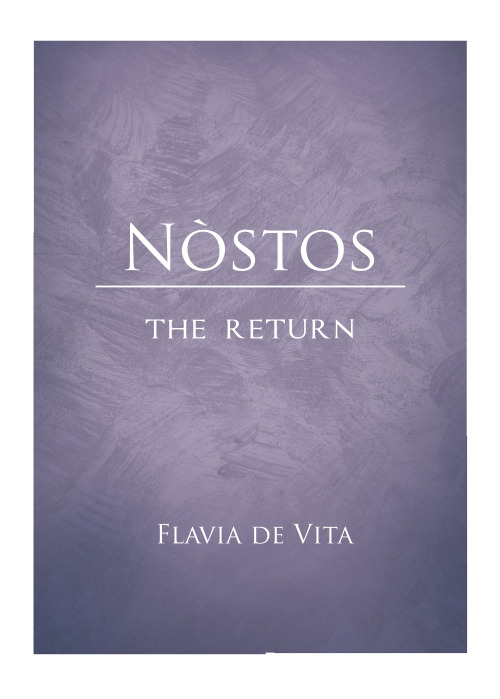
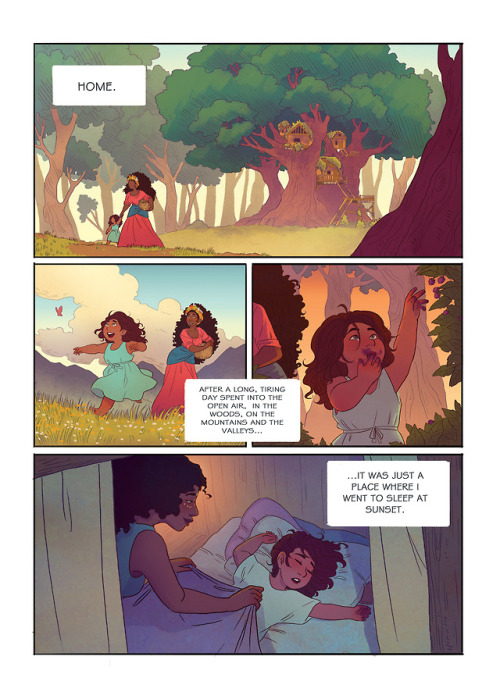
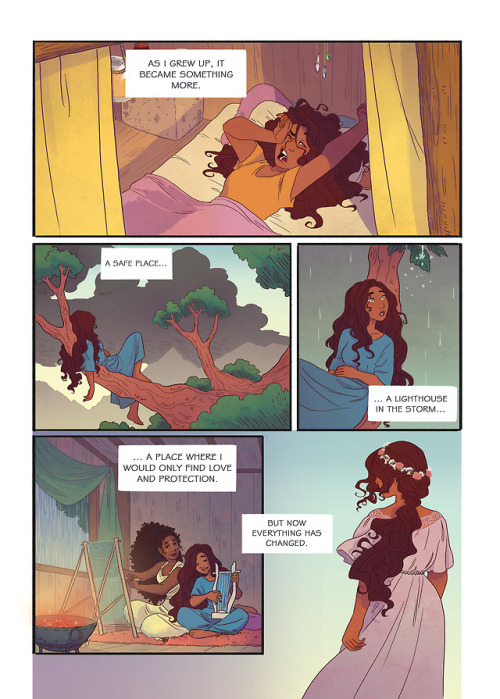
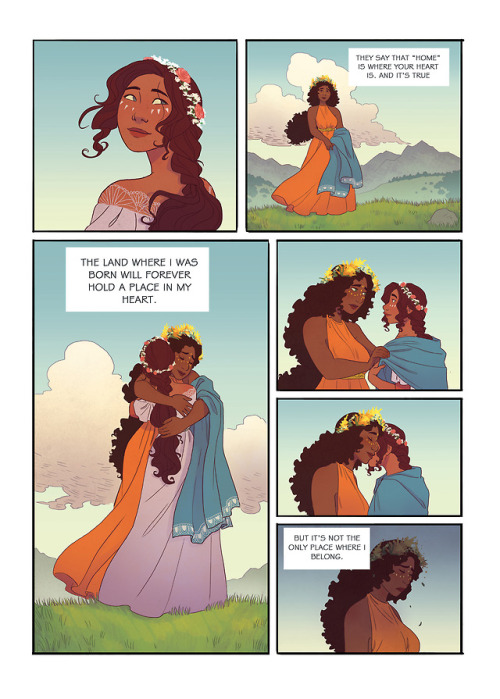
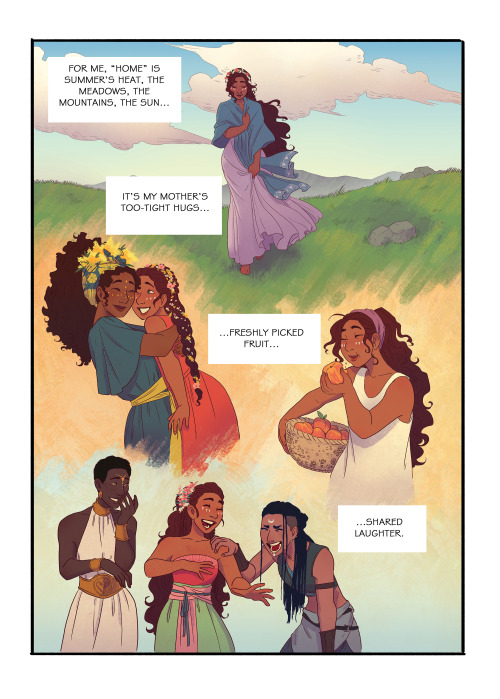
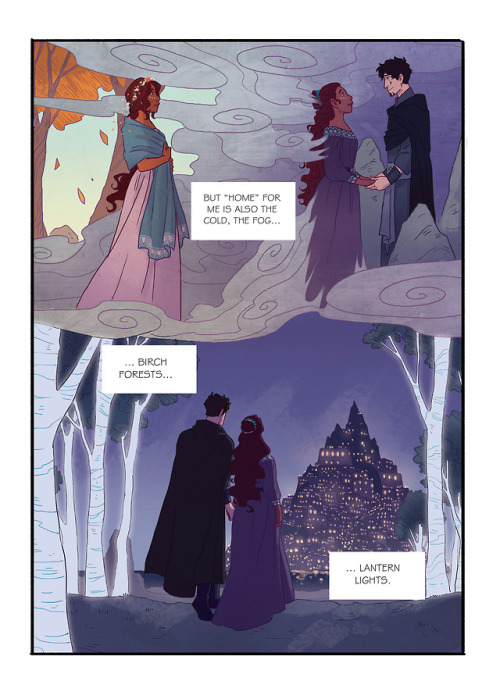
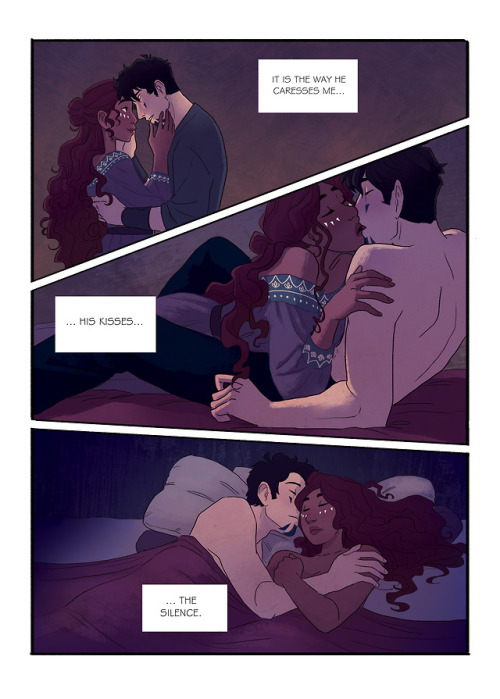
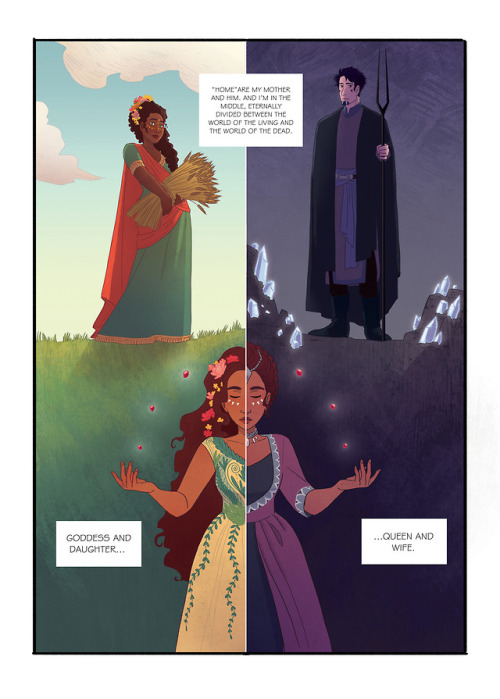
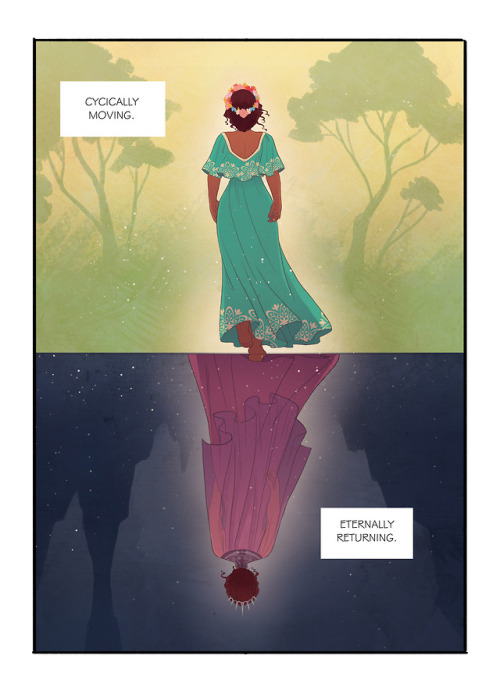
A short story I wrote this summer.
How to Write a Death Scene
So, you want to write a death scene that hits your readers hard, right? Something that sticks with them, makes them feel something real?
First, give the death meaning. You can’t just toss in a death for the shock factor and call it a day. Even if it’s sudden or unexpected, the death has to matter to the story. Think about how it changes things for the characters who survive. Does it mess with their relationships? Their goals? Make sure this moment sends ripples through the rest of your plot. It’s gotta affect everything that happens after, like an emotional earthquake.
Then, think about timing. You don’t want to drop a death scene at the wrong moment and ruin the vibe. If it’s part of a big heroic moment or a heartbreaking loss in the middle of the story, it should feel earned. The timing of the death decides how your readers will react, whether they feel relief, gut-wrenching sorrow, or are totally blindsided. The right moment makes all the difference.
Next up, focus on the characters’ emotions. Here’s the thing, it's not always the actual death that makes a reader cry, it's how everyone feels about it. How do the characters react? Is the person dying scared, or are they at peace? Are the people around them in shock, angry, or just completely destroyed? You need to dive deep into these emotions, because that’s where your reader connects.
Make sure to use sensory details to pull readers into the scene. What does it feel like? The sound of their breathing, the stillness when they’re gone, the way everything feels heavy and wrong. Little details make the death feel real and personal, like the reader is right there with the characters, feeling the weight of the moment.
If your character has the chance, give them some final words or actions. What they say or do in those last seconds can really hit hard. Maybe they share a piece of advice, ask for forgiveness, or try to comfort the people around them. Even a simple gesture, a smile, a touch, a last look can leave a lasting impression. This is your last chance to show who this character was, so make it count.
Finally, don’t just stop when the character dies. The aftermath is just as important. How do the survivors deal with it? Does your main character fall apart, or do they find a new sense of purpose? Are there regrets? Peace? Whatever happens next should be shaped by the death, like a shadow that never quite goes away. Let your characters carry that weight as they move forward.
For questions or feedback on writing materials, please send me an email Luna-azzurra@outlook.com ✍🏻
Whenever I see people saying that Hugo's admittedly insane info-dumping in Les Miserables is due to the fact that he was paid by the word, I get unreasonably angry.
Guys, no, you just don't get it. YOU LITERALLY DON'T GET IT.
The guy was writing this book for 20 years. 20 YEARS. It was the work of a lifetime. He travelled around, in France and abroad (Belgium), just to get a close look of all the places he was writing about, talk to the people there, communicate with the place etc. And like, he didn't travel by a motorbike, or cars or airplanes. This was not the vibe at the time.
Also, since we are in the 19th century may I remind you that there was no Google Search at the time. You couldn't just go to Wikipedia and learn about Louis-Philippe and the July Monarchy, you couldn't go to Youtube and watch documentaries about the June Rebellion and testimonies of people that were there and witnessed it. You couldn't just go to Spotify and listen to historical podcasts about the Battle of Waterloo or watch live footage. You couldn't know shit about the way Paris functioned, the history of the city, the importance and the role of infrastructure (INCLUDING THE SEWERS YES) and the way the infrastructure of a city is literally a reflection of the people and the customs and the social plagues that were specific of that city, unless you were, quite literally, a Statesman (and only if you gave a shit, which most didn't). There was no Vice News to inform you of the shit that happened in monasteries or in the labour camps. There was no possible way for anyone to have access to information on any of these things, things that were all of VITAL importance for the fate of french people, that were, for the most part, illiterate, ignorant, and/or struggling to survive until the next day. The solution for this was political conscience and social awakening but how could you do that if you don't have a voice and you don't have basic information and knowledge? But. There was a man that had the means, that had the ressources, that had the money, and he decided to actually do something with that. He decided to speak out. He decided to write a novel about an entire human society and the people in it. How they lived, what they dreamed, how they suffered, how they tried to change their fate, how they failed, how they tried again, and failed again. He gave voice to people who, quite literally, didn't have a voice. It is no coincidence that the book was loved by the people (the mass) but hated by pretentious critics, including other novelists of the time. It wasn't a novel about critics, it was a novel about people. And people loved it. They loved the info-dumping cause it wasn't "info-dumping", nor a """""""filler"""""""" for god's sake, it was quite literally a window to their world, their living space, their history, their roots, their political struggles, a window that they simply didn't have before, and that book gave it to them. It educated people at the time when they couldn't be educated otherwise, at a time when education was indispensable for social change.
But sure Hugo just dedicated 2 decades of his life writing """""fillers""""" to pass the time and get more money lmao. Shut up for the love of god.
Final note: I'm not saying that Hugo's portrayal of french society is without flaws or totally realistic, or that his characters don't seem simplistic at times in their misery and total victimization. This work doesn't delve deeply into the person, that is its flaw. It goes mainly outwards, because its main goal is to educate, while at the same time being immensely entertaining, (at least for people who weren't used to instant gratification like nowadays). That is his value.
do you have any advice for younger / newere writers? you write so much and you're very skilled! i'm inspired by you
Aww thanks! Maybe I write a bit too much ahaha.
Well, idrk what you’re searching advice for so I will give general tips.
Before writing:
Do your research. Not only about the subject, but if there’s people out there who have also thought about the idea and have a tag for it.
Set a goal. I suck at this myself, but having a not-rigid word count goal (with timer if it makes you feel more motivated) really get your gears going. There’s a few pages that make it more entertaining too!
Warm up Drabbles. Nothing better than writing something adjacent to what you really want to write just to warm up and get a bit more creative so you hit the zone quicker.
This is optional but if you have time, make a page for your characters and setting. Like a reference page so you don’t go write someone is 160 cm when you have already said they’re 178.
While writing:
Limit your editing. It’s tempting to correct in the moment, (more if you’re unsure about grammar) but sometimes while fixing something you lose your pace and in the worst cases, forget where you were going. Editing can come later.
If you’re gonna have CW at the top, highlight the key words so it’s easier to go through it later.
After writing:
Don’t delete your scrapped ideas. You don’t know when you might wanna use that idea, so even if it’s never used having an scrap document for them is great.
If you didn’t like the end product altogether, it’s fine to put it aside for a while and come back to it later to see if it really should be abandoned in the scrap document or tossed away. Sometimes a little bit of time makes the errors look less severe and fixable and the good things to pop out more. Let it brew!
Pass your text through a beta reader and a program that allows you to correct your grammar and spot typos.
To gain attention:
Quick note here, don’t get discouraged if you don’t receive millions of likes in your first chapter. Sometimes it takes two projects or more to get traction. Keep going regardless of numbers! They don’t dictate how good you are!
Interact with others. Slide into inboxes, participate in ask and tag games, reblog other people’s fics, make collabs. most people are cool with being tagged in games even if you’re not mutuales with them so don’t be shy! Although, Don’t just talk to people to use their following.
Take part in writing/drawing challenges. July has the @whumpmasinjuly event with a prompt list, as there is events like the month of writers, nanowrimo, whumptober, etc.
Keep writing and explore other ideas besides your comfort zone. This started as a whump writing blog, but evolved into positivity, some art and writing (even occasional thoughts and poetry) The variety lends itself to grow your range of public and to expand your creative library.
Promote yourself. Shamelessly self reblog your favorite fics, or just reblog it for the timezone difference. You’re proud of what you wrote and I’m proud of you for writing it, but sometimes tumblr sucks and I won’t see it immediately. So don’t be afraid of reblogging your own things!
Make your own events and ask games. DTIYS, requests, giveaways when you hit a follower milestone. If you have the time for it and have fun doing it, go for it!
This is my personal opinion, but having visuals for your story such as mood boards, picrews, illustrations, etc. Makes me more interested in a story. It’s also an easy way to present your characters to your readers.
Have fun. It’s noticeable when an author is having fun writing it and when it feels like a chore. I’m not telling you to absolutely love it, just to trust in yourself and what you’re doing a bit. If it doesn’t feel right, revision it. If you can’t find it, hand it to someone and ask for their opinion. Not having fun doing what you love hurts like a bitch, and it just rubs salt in the wound when it flops or you can’t stand reading through it. So, explore ideas, maybe go back to your comfort to come back to the new a bit less scared. Or maybe find new inspirations so you can go rush and add new stuff and weed out what doesn’t seem right.
Overall that’s it I think. @ashintheairlikesnow has a great tag for new writers in her blog so I advice to check that out and ask more people. @thewritershandbook is also a good resource place!
Good luck anon! I’ll be cheering on you.
How to avoid White Room Syndrome
by Writerthreads on Instagram
A common problem writers face is "white room syndrome"—when scenes feel like they’re happening in an empty white room. To avoid this, it's important to describe settings in a way that makes them feel real and alive, without overloading readers with too much detail. Here are a few tips below to help!
Focus on a few key details
You don’t need to describe everything in the scene—just pick a couple of specific, memorable details to bring the setting to life. Maybe it’s the creaky floorboards in an old house, the musty smell of a forgotten attic, or the soft hum of a refrigerator in a small kitchen. These little details help anchor the scene and give readers something to picture, without dragging the action with heaps of descriptions.
Engage the senses
Instead of just focusing on what characters can see, try to incorporate all five senses—what do they hear, smell, feel, or even taste? Describe the smell of fresh bread from a nearby bakery, or the damp chill of a foggy morning. This adds a lot of depth and make the location feel more real and imaginable.
Mix descriptions with actions
Have characters interact with the environment. How do your characters move through the space? Are they brushing their hands over a dusty bookshelf, shuffling through fallen leaves, or squeezing through a crowded subway car? Instead of dumping a paragraph of description, mix it in with the action or dialogue.
Use the setting to reflect a mood or theme
Sometimes, the setting can do more than just provide a backdrop—it can reinforce the mood of a scene or even reflect a theme in the story. A stormy night might enhance tension, while a warm, sunny day might highlight a moment of peace. The environment can add an extra layer to what’s happening symbolically.
Here's an example of writing a description that hopefully feels alive and realistic, without dragging the action:
The bookstore was tucked between two brick buildings, its faded sign creaking with every gust of wind. Inside, the air was thick with the scent of worn paper and dust, mingling with the faint aroma of freshly brewed coffee from a corner café down the street. The wooden floorboards groaned as Ella wandered between the shelves, her fingertips brushing the spines of forgotten novels. Somewhere in the back, the soft sound of jazz crackled from an ancient radio.
Hope these tips help in your writing!
Pls make a list of books you recommend to aspiring writers<3
Ok. Aspiring/burgeoning writer starter kit:
In writing anything you officially become a writer so that’s step one haha, no need to aspire too much. BUT. I’m going to soapbox for a bit using this ask as an excuse love u kissing u etc. So. This will barely be about books, but sort of the recipe of what I (personally and subjectively) think will help anyone who wants to grow their craft. (I know because I've been writing seriously for 14 years)
The act of writing is the best practice you can get but having a well from which to draw on creatively and skill wise in order to DO that practice is the trickier part. And sometimes we can be found lacking because we’re either NOT refilling that well enough, consciously enough, or only with the same sorts of things so it gets stagnant. This is a long one so I’ll shove it under the cut haha.
The recipe:
Study craft
Broaden horizons
Diversify consumption
Consume with intention
Apply with reference
1) Study craft: this is the easiest to make sense of, right? I want to get good at writing so I read books about writing yada yada. Whatever you’re writing, it’s made up of a lot of moving parts, and you can dedicate time studying EACH PART, but figure out what you have the least experience with, or the most difficulty with, and start there. Also, before I go on to preach about why you shouldn’t solely stake your growth on some dusty old books, here’s some dusty old books I recommend:
The Elements of Style (strunk/white/kalman) (really quick and abbreviated advice, read every bit of this but remember: rules are important to know so you can decide which are worth following and which are in need of breaking for the pursuit of your goals. And nobodies perfect, or editors wouldn’t have a job)
Bird by Bird (Anne Lamott) (excellent work about fostering a process, important for everyone who finds themselves a little lost on how to just. Start)
Wonderbook (Jeff Vandermeer) (I haven’t read this one but knowing Vandermeers work this is on my TBR and I KNOW it’s going to be enlightening)
How to Read Literature like a Professor (Thomas C. Foster) (perfect for those who can see others stories working but unsure how to make their own work, I personally didn’t read much of this one but this will help people to more critically engage with what they’re consuming)
Save the Cat Writes a Novel/Joseph Campbells Hero’s Journey/On Writing and Worldbuilding/etc (all of these are on structure and craft in a concrete sense), I would recommend either choose one OR getting the abbreviated/digestible versions through YouTube because a lot of these can repeat themselves. I’m working on a playlist of writing craft/structure videos that I found helpful, so keep an eye out for that)
So. Studying craft should be a multidisciplinary process. Articles online, videos on niche media, books on craft or copying things from your favorites, looking for yourself in the movies you watch or fiction you read. Punctuation, prose, structure, rhetoric, character, world building, pacing, etc. Unfortunately, no matter how seasoned you become as a writer, you will always be learning new things about the craft itself.
It should be fun and I honestly feel like an enlightened little scientist when I see something that really cracks the open the magic for me (ex: scenes that serve more than one purpose are OF COURSE going to be more engaging that scenes with only one purpose- duh) (of COURSE magic systems should have a cost) (of COURSE the characters cant always win OR always lose)
2) Broaden horizons: consuming fiction and studying it is key to knowing how to reproduce it. We start with the training wheels of imitation before we ride away full speed into truly unique original storytelling. But the most impactful and thought-provoking stories are more than just fiction, so you need to know more than stories. Science, history, art, craft, math, music, cooking, psychology, religion, whatever!
Everyone always parrots “write what you know”, but what you KNOW can expand to influence what you write- so keep learning new things all the time and for fun, because you never know what could help your story. Your knowledge is not limited to experience alone, and research is your best friend. ASOIAF was so loved because George RR Martin loved not only fantasy, but British history. The Folk of the Air series is so loved because Holly Blacks special interest is faeries.
Note: this does not mean the study of OTHER PEOPLES trauma and experiences in an appropriative way, rather, become worldly. Because sure, knowing what a gunshot feels like adds realism, but I don’t care about realism if I don’t care about your characters or world. Science fiction is the best example of this: so many of those stories stick with us generationally because they’re pointing a lens back at humanity, asking big philosophical questions with science, which is something that touches us all.
But it doesn’t even need to be Big and Thematic like that. My dear friend @chaylattes has a project where she’s applied her love of plants to the world building AND plot, and has INVENTED whole plant species that enriched their work with something so exclusively Chay. No one else could write Andromeda Rogue because Chay, with specific interests and knowledge, put that specificity into the story.
3) Diversify consumption: surrounding yourself with more of the same means you’re going to regurgitate the same, derivatively. To be a hater for a moment: I can tell within the first chapter if someone only reads/watches one kind of media (m*rvel, fairy smut, grim dark nonsense, etc), and it’s distracting. When I read that derivative work, I’m not thinking about THEIR story. All I can think of is the people who did it first, and better.
Alternatively, the best work draws on the unexpected. Fantasy work taking notes from horror, science fiction including humanistic romance, romance with elements of mystery. RF Kuangs work feels so smart because she’s literally a PHD candidate who’s reading of academic writing. Cassandra Clares work is so interpersonally messy and hard to look away from because she watches a lot of reality television.
Genre is less a set of cages to lock yourself inside of and more so the sections of a great big fictional playground- and you need to start playing. Rules, again, are guidelines that can be bent for the sake of your stories. I predominantly write scifi/fantasy/horror but some of my favorite stuff is literary fiction, historical nonfiction, thrillers, and poetry.
And if you can’t bring yourself to read different genres, it takes significantly less effort to WATCH different genres. Television and film are stories too, and can absolutely be learned from.
4) Consume with intention: this is easier said than done. I, embarrassingly, admit that I did not have any reading comprehension skills until I was at least 19. I was consuming, but I wasn’t thinking a damn critical thought, just spitting it back out in a way that sounded smart.
Critical thinking skills (I say, on the website that historically lacks such a thing) are a muscle that needs to be exercised just as often as your writing muscle. Reading new work, studying craft, learning new shit- none of it matters if you can’t APPLY it all to a story. One can take a clock apart to learn how exactly it ticks, but it won't tell time like a watch until you put it back together.
The key is asking questions, all of the time about everything. That whole “why the curtains were blue” nonsense comes to mind, but if you want to be a good writer, (edit: a writer that cares about whether or not their work is vapid imitation of better work) learning to ask WHY the curtains are blue really does matters.
Ask why in ALL stories you consume, including your own. Why do Ghibli films make me feel calm? (Motifs of undisturbed nature, low stakes plots and quiet scenes of reprieve between action, characters that care about one another and aren’t afraid to show it) Why do I fly through a Gillian Flynn novel but take 8,000 years to read other books? (Concise descriptions, realistic but evocative premise, witty voice, contained and fast paced plot, an abundance of questions driving the mystery leading up to a satisfying crash of answers at the end) Why were the curtains blue, the coffee cup chipped, and the lipstick stain on the rim red instead of purple or pink? And why did the colors matter at all when the scene is about a father at a kitchen table? (You tell me!) Answers may vary.
You can put the work into learning the answer at the source (ie: listening to authors talk about their own work), or through the external interpretations of a critic (proceed with caution here), sure. These are even good when learning HOW to think critically if you don’t even know where to start. But your growth as a writer depends on your ability to answer your OWN questions.
(Why do I feel tense in this scene? Is it because the character says they’re sweating and struggling to breathe? Is it because I’ve been told the monsters close? Is it because the sentences are getting shorter and the author keeps repeating descriptions of that monsters massive bloody teeth coming closer? Or is it because I know the gun in her hands has no bullets because another character already tried what she’s about to try?)
(Why do I feel sad in this scene? Is it because the characters mom just died? Is it because the character can’t even verbalize that sadness to others? Is it because none of the other characters seem to care enough to ask? Is it because of the wilted flowers in the corner? Or is it because there are daisies in the bouquet, and those were the moms favorite?)
I can nod and smile at 1000 opinions about “why X did Y and the end of Z” or “why X is Y and not Z” but how I felt when I consume something, how I was affected and how it made ME PERSONALLY answer my critical questions, that’s what’s important. That’s how we manufacture gay subtext in everything, because sometimes gay is a feeling as opposed to a fact.
Also, if those subjective answers are inconsistent among readers/viewers, the writer likely had their own intentions a little muddled. So, and I know I’m getting tangential but stay with me: romance. You know how you’re supposed to feel happy or convinced that the people falling in love are like, in love? And want to put yourself in that position or whatever? I CANNOT consume most romance media because it all comes off as categorically terrifying to me. I ask myself why the characters are doing what they do, reacting the way they react, saying way they say, and none of it feels romantic. I want to file a restraining order, and that’s the failing of the author, who did not make enough conscious choices in their work and accidentally created horror while writing their color by numbers trope slop of a “romance” novel.
5) Apply with reference: is like taking all your ingredients and finally cooking. You want people to notice and respect when you add certain literary devices, descriptions, character choices, but not to the detriment of your work. Shows like stranger things are popular but divisive because their intertextuality and reliance on nostalgia bolster an otherwise unoriginal idea. They weren’t trying to reinvent the wheel, they were writing a love letter to Stephen Spielberg, and are riding that wave into the ground. But the fairy dick renaissance doesn’t feel nearly as palatable as season one of stranger things did because a lot of times they aren’t using the ingredients in their own way, rather, following the recipe to a T and selling it as new. Food really is the perfect metaphor and sorry in advance because I’m really going to run with it here lol.
When I eat a meal, first of all I know I'm eating food, so don't try and trick me into thinking otherwise or I'll only get annoyed. I want to be able to taste all of what’s in front of me, spice, salt, sweet, bitter, etc and know what what you said you've fed me is really actually truly what I've eaten. One ingredient, or writing choice, shouldn’t overpower another, or surprise me so much I can’t take another bite. I shouldn’t try something you call “sauced and baked yeast patty garnished with fermented milk and smoked meat” and think “this shits pizza” because you didn’t even try to jazz it up more than what the instructions on the digiorno box said. I also shouldn’t bite into something you call a pizza and only taste bread because you really like bread and forgot that a pizza is more than just bread.
But inversely, avoiding all ingredients gets you weird, nary inedible shit like charred milk reduction with lamb mist or whatever. Show me you have knowledge in your genre by referencing it AND remixing it, show me that you studied craft by foreshadowing properly or pacing well, show me you’re more than an AI writerbot by deepening your work with your unique and human influence, show me you read broadly by adding surprising ingredients, and show me that you mean every word you write because you made the curtains blue instead of yellow, and topped your pizza with pepperoni instead of pineapple.
Congrats on making it all the way through my rambling, hope I made sense and that this helped!
A Few Tips On Writing Chapters
Give each chapter a descriptive title.
Especially if you find yourself at sea when deciding how exactly to chop your story into pieces. Even if you don’t want to use chapter titles in your final draft, they’re of enormous use when you’re still figuring out exactly what the shape of your story is. By giving your chapter a descriptive title, you’re giving your chapter a focus and a particular story for your chapter to tell.
Make sure each chapter has its own self contained narrative arc.
This is not to say that every novel must be episodic, but that each section should have its own beginning, middle, and end. It should have set up, build up, and resolution. It should ask a question an implicit question at the beginning and provide a slightly more explicit answer at the end.
Example: one chapter in my book is just 500 words. Two new characters drive into town, get out of a car, knock on a door, and they say their names. The beginning is the introduction of the mystery of these characters. It’s the question “who are these people?” As they drive, you see them and where they are going, which builds towards the answer. As a resolution, you get their names.
You wouldn’t call this a “short story” by any means, but it does have a firm beginning, middle, end. It is a contained unit.
A chapter break can–and sometimes should–come in the middle of a scene.
Twists and cliffhangers can appear at the end of novels, so it would be silly to say you couldn’t end a chapter that way, too. Cliffhangers and twists are usually both a result of other plot points, and the cause of a new problem. Narratively, they function both as the ending of one thing and the beginning of another, so they make for great chapter breaks. Separating the scene at a cliffhanger is often better/cleaner than lumping the entire scene into one chapter.
Example: Alex is warned to stay away from a dangerous cliff. Alex gets adventurous and wanders toward cliff. Alex falls off of cliff. Beginning. Middle. End.
Alex is actually hanging from cliff! Alex figures out a way to get back to solid ground, struggles. Alex makes it back to solid ground. Beginning. Middle. End.
You want your readers to “just one more chapter!” their way through your book. Stuffing moments of high tension into the middle of chapters that resolve neatly won’t keep them turning pages.
Always end your chapters on a point of intrigue.
Using points of tension to bookend chapters is important because chapter endings are usually where readers put a book down during a reading session. They’re very naturally places to close the cover and walk away.
As a writer, you don’t want this. You absolutely don’t want to give your reader great places to put the book down, because you need them to pick the book up again as soon as possible. Not the next day, or the next week, (or never), but while they have a spare minute during their commute, or during their lunch break, or under their desk in class.
You want to encourage this by taking that perfectly natural endpoint, that place they expect to be able to put the book down, and forcing them to take even a tiny peak at the next chapter.
This doesn’t mean ending every chapter on a verifiable cliffhanger, but there has to be something. A character can solve a mystery. A new character can appear. There can be a moment of irony. A new idea. Just so long as it’s something that will make the reader think “I need to know what happens next.”
Some of my writer’s block cures:
Handwrite. (If you already are, write in a different coloured pen.)
Write outside or at a different location.
Read.
Look up some writing prompts.
Take a break. Do something different. Comeback to it later.
Write something else. (A different WIP, a poem, a quick short story, etc.)
Find inspiring writing music playlists on YouTube. (Themed music, POV playlists, ambient music, etc.)
Do some character or story prompts/questions to get a better idea of who or what you’re writing.
Word sprints. Set a timer and write as much as you can. Not a lot of time to overthink things.
Set your own goals and deadlines.
Write another scene from your WIP. (You don’t have to write in order.) Write a scene you want to write, or the ending. (You can change it or scrap it if it doesn’t fit into your story later.)
Write a scene for your WIP that you will never post/add to your story. A prologue, a different P.O.V., how your characters would react in a situation that’s not in your story, a flashback, etc.
Write down a bunch of ideas. Things that could happen, thing that will never happen, good things, bad things.
Change the weather (in the story of course.)
Feel free to add your own.
5 Ways to Make Your Writing Sessions More Productive
1. Set specific goals: Before each writing session, establish clear objectives for what you want to accomplish. This helps you stay focused and motivated throughout the session. Whether it's completing a certain number of pages, reaching a specific word count, or finishing a particular section, having a goal in mind keeps you on track.
2. Create a conducive writing environment: Find a quiet and comfortable space where you can minimize distractions. Eliminate clutter, turn off notifications on your electronic devices, and set up a writing area that inspires creativity. Some people find instrumental music or ambient sounds helpful for concentration, so experiment to find what works best for you.
3. Develop a routine: Establish a regular writing schedule and stick to it. Consistency builds momentum and makes writing sessions feel more like a habit. Whether you prefer to write early in the morning, late at night, or during specific time blocks throughout the day, find a routine that aligns with your energy levels and other commitments.
4. Use productivity techniques: Explore different productivity techniques to enhance your focus and efficiency. One popular method is the Pomodoro Technique, which involves working for a concentrated period (e.g., 25 minutes) followed by a short break (e.g., 5 minutes). Repeat this cycle several times, and then take a longer break (e.g., 15-30 minutes). Other techniques include time blocking, task prioritization, and setting deadlines.
5. Minimize self-editing during the drafting phase: When writing your first draft, try to resist the urge to constantly edit and revise. Instead, focus on getting your ideas down on paper without judgment. This allows for a more continuous flow of thoughts and prevents self-censorship. Save the editing for later drafts, as separating the drafting and editing stages can lead to increased productivity and creativity.
any tips on how to keep myself motivated on my WIP and not totally abandon it? 🥲
I have a whole Motivation master list, but here are some particular posts that might help:
5 Reasons You Lost Interest in Your WIP, Plus Fixes! Guide: How to Rekindle Your Motivation to Write Getting Excited About Your Story Again Feeling Unmotivated with WIP Getting Unstuck: Motivation Beyond Mood Boards & Playlists Getting Your Writing Magic Back After a Break
Happy writing!
•••••••••••••••••••••••••••••••••
I’ve been writing seriously for over 30 years and love to share what I’ve learned. Have a writing question? My inbox is always open!
Learn more about WQA
See my ask policies
Visit my Master List of Top Posts
Go to ko-fi.com/wqa to buy me coffee or see my commissions
-
 antihell liked this · 1 week ago
antihell liked this · 1 week ago -
 lilaclotuses reblogged this · 8 months ago
lilaclotuses reblogged this · 8 months ago -
 i-love-books-because-reasons liked this · 8 months ago
i-love-books-because-reasons liked this · 8 months ago -
 superheroauthor reblogged this · 9 months ago
superheroauthor reblogged this · 9 months ago -
 heckcareoxytwit reblogged this · 9 months ago
heckcareoxytwit reblogged this · 9 months ago -
 tenaciousindomitablewildfire liked this · 11 months ago
tenaciousindomitablewildfire liked this · 11 months ago -
 theresourcedhunt reblogged this · 11 months ago
theresourcedhunt reblogged this · 11 months ago -
 tired-reader-writer liked this · 1 year ago
tired-reader-writer liked this · 1 year ago -
 dolourstories liked this · 1 year ago
dolourstories liked this · 1 year ago -
 cherry-pichu reblogged this · 1 year ago
cherry-pichu reblogged this · 1 year ago -
 cherry-pichu liked this · 1 year ago
cherry-pichu liked this · 1 year ago -
 charliegreenbean liked this · 1 year ago
charliegreenbean liked this · 1 year ago -
 millennial-teenybopper liked this · 1 year ago
millennial-teenybopper liked this · 1 year ago -
 mika3105 liked this · 1 year ago
mika3105 liked this · 1 year ago -
 thesilliestofgals liked this · 1 year ago
thesilliestofgals liked this · 1 year ago -
 feline17ff reblogged this · 1 year ago
feline17ff reblogged this · 1 year ago -
 to-younger-me-from-future-me reblogged this · 1 year ago
to-younger-me-from-future-me reblogged this · 1 year ago -
 fivebifivesunnydaleavenue liked this · 1 year ago
fivebifivesunnydaleavenue liked this · 1 year ago -
 barako-and-tea liked this · 1 year ago
barako-and-tea liked this · 1 year ago -
 cap-kat liked this · 1 year ago
cap-kat liked this · 1 year ago -
 heckcareoxytwit liked this · 1 year ago
heckcareoxytwit liked this · 1 year ago -
 oogelyboogely liked this · 1 year ago
oogelyboogely liked this · 1 year ago -
 justalittleguyyouknow liked this · 1 year ago
justalittleguyyouknow liked this · 1 year ago -
 yenoodlethings liked this · 1 year ago
yenoodlethings liked this · 1 year ago -
 unknownnubroooo liked this · 2 years ago
unknownnubroooo liked this · 2 years ago -
 newdawnhorizon reblogged this · 2 years ago
newdawnhorizon reblogged this · 2 years ago -
 agente707 reblogged this · 2 years ago
agente707 reblogged this · 2 years ago -
 adorable-bookworm liked this · 2 years ago
adorable-bookworm liked this · 2 years ago -
 lankinen liked this · 2 years ago
lankinen liked this · 2 years ago -
 kaiarchives liked this · 2 years ago
kaiarchives liked this · 2 years ago -
 renee561 reblogged this · 2 years ago
renee561 reblogged this · 2 years ago -
 muldxr liked this · 2 years ago
muldxr liked this · 2 years ago -
 kayinspo reblogged this · 2 years ago
kayinspo reblogged this · 2 years ago -
 sehunpilled liked this · 2 years ago
sehunpilled liked this · 2 years ago -
 yoruciel liked this · 2 years ago
yoruciel liked this · 2 years ago -
 casualfireenemy liked this · 2 years ago
casualfireenemy liked this · 2 years ago -
 ultimatestellar liked this · 2 years ago
ultimatestellar liked this · 2 years ago -
 prehistoricsilverfish reblogged this · 2 years ago
prehistoricsilverfish reblogged this · 2 years ago -
 asingledropofwinter liked this · 2 years ago
asingledropofwinter liked this · 2 years ago -
 thirteenstrikes reblogged this · 2 years ago
thirteenstrikes reblogged this · 2 years ago -
 solvingpuzzles-savingtheday liked this · 2 years ago
solvingpuzzles-savingtheday liked this · 2 years ago
